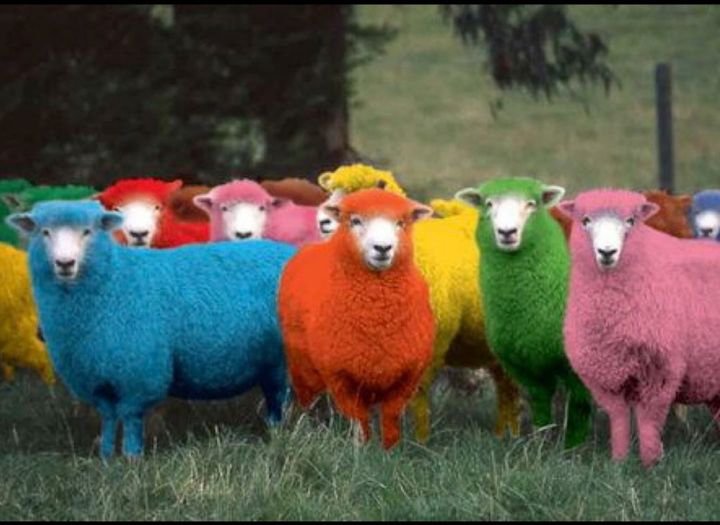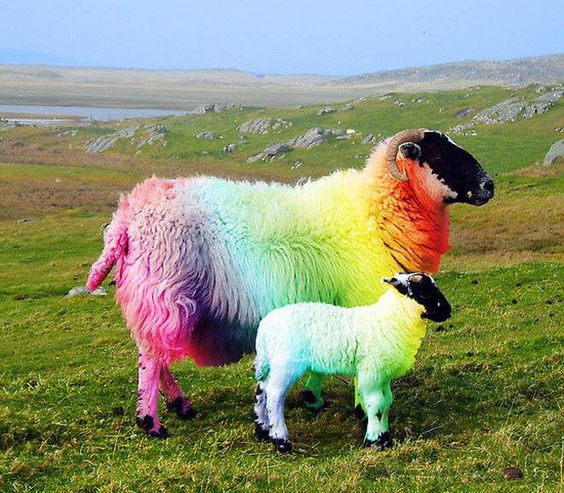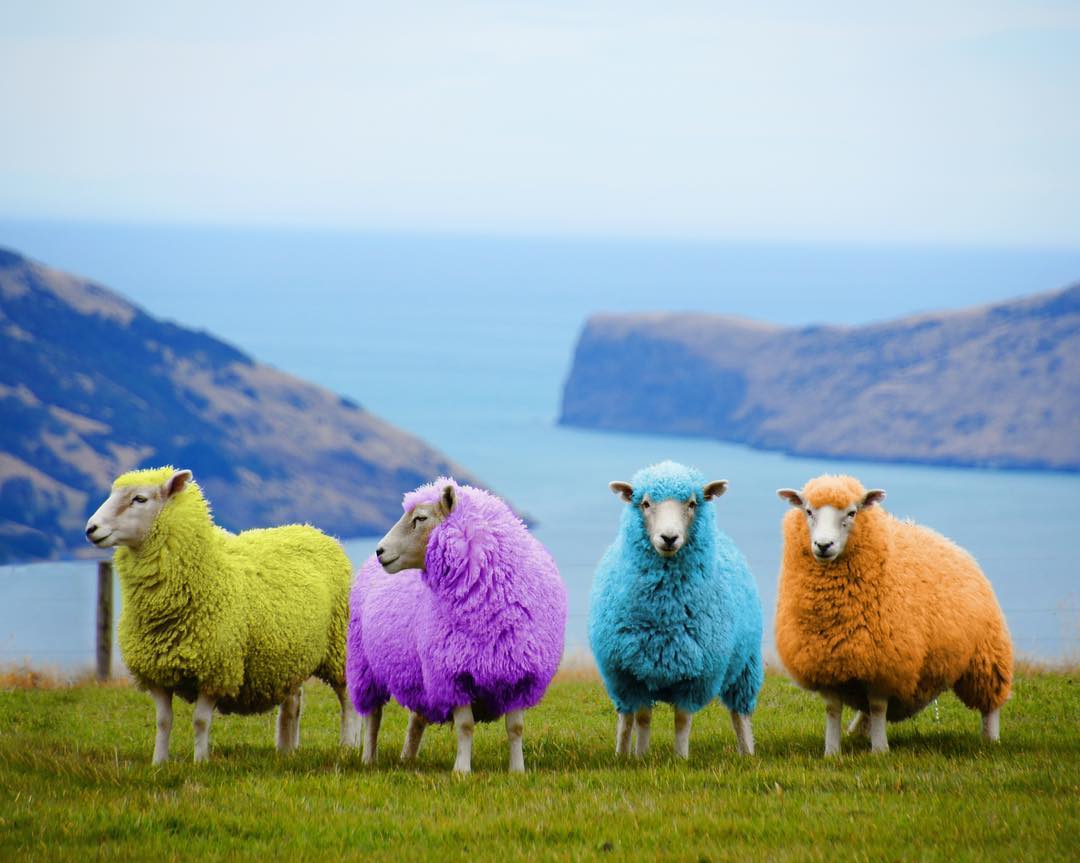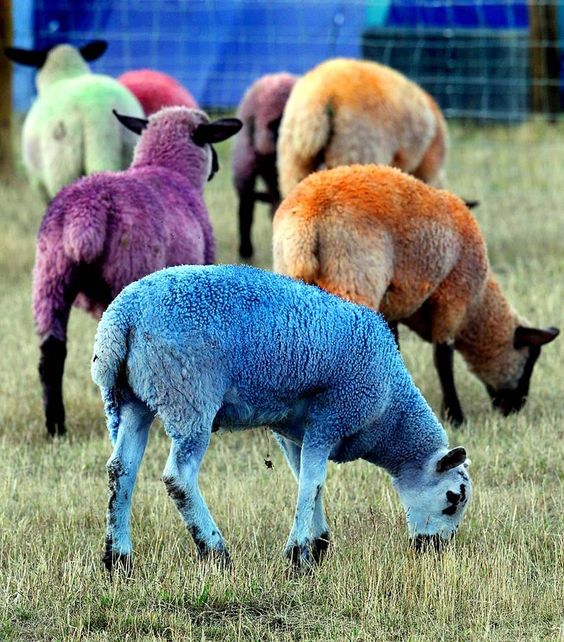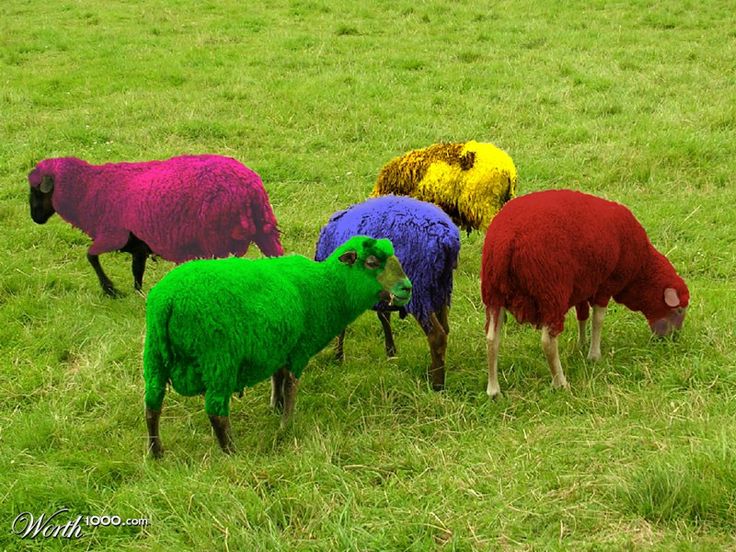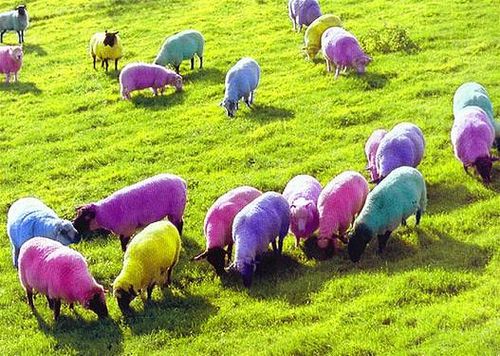Across our planet, there is a fascinating sight that adds vibrancy to the rolling hills and meadows. These are the rainbow flocks – a gathering of sheep with wool that displays a colorful diversity. Join us as we discover the wonder of these vibrant animals and uncover the intriguing stories behind their remarkable appearances.

Nature’s Ever-Changing Colors Even though sheep are commonly associated with white wool, there exist several breeds of sheep with wool in varying attractive colors. These vivid flocks add a splash of color to rural landscapes, ranging from subtle pastels to bold and bright hues. Their woolly coats are patterned in a way that reminds one of a living tapestry, highlighting the unique beauty of nature.

Sheep come in a variety of types, some of which have been specifically bred for their distinctive and vibrant wool colors. These are known as “color breeds” and contribute to the beautiful array of colors seen among these flocks. Examples include the stunning Blufaced Leicester with its sparkling silver-gray fleece and the magnificent Jacob sheep with its characteristic black and white patterning. These breeds not only supply wool for textiles but also add a touch of whimsy and charm to rural environments.

The reason behind the vibrant and colorful appearance of sheep is attributed to genetic variations and selective breeding. These unique sheep possess a gene that controls the production of pigments in their wool, resulting in a wide range of colors being displayed. Through meticulous breeding techniques, breeders have successfully preserved and enhanced these vivid hues, ultimately creating a living palette that celebrates the diversity of wool colors available.

